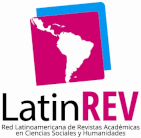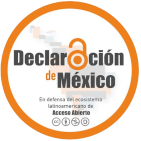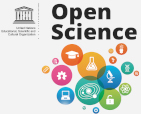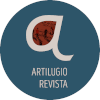Annotations on Un texto camino (sung and spoken by Caistulo, listened/transcribed by Dani Zelko)
Keywords:
listening, procedure, poem, affection, signAbstract
We are interested in raising some questions about Un texto camino, a text that is part of the series under construction Movimiento por la lengua, edited by Dani Zelko using a specific procedure that links orality, listening, transcription and editing. Unlike other texts in the series, the case of the testimony/song of Caístulo —inhabitant of a Wichi community in the Gran Chaco, located on the border between Argentina, Bolivia and Paraguay, crossed by extremely precarious historical conditions— arises after an extreme experience he lived at the time of the pandemic/2020: after remaining in a coma for several hours in the bush, he wakes up and begins to sing in Wichí ihämtes, certain messages —he says— “that the mothers, what we usually call trees, transmit to them”. We wonder about this “song” and the subsequent narration that gave rise to this text: how this voice bursts into the public space, what affects/thoughts it gives rise to and how the procedure implemented by Zelko would operate in this sensitive emergence. Listening as a mode of relation allows us to inquire into the voice/word of Caístulo, in the images of thought that he deploys, in the use of signs and their connections, at the same time that it would stress certain codified forms of listening, which prompts us to reflect on other ways of intervention in the aesthetic and political imagination.
Downloads
References
Boero, S. (2020). Voces y mundos que resuenan. Apuntes sobre el vínculo entre lo sensible y lo político a partir del “procedimiento” compuesto por Dani Zelko. El caso Lof Lafken Winkul Mapu. Actas del X Encuentro Interdisciplinario de Ciencias Sociales y Humanas “Las urgencias del presente: Desafíos actuales de las ciencias sociales y humanas”. Universidad Nacional de Córdoba, CIFFyH, IDH-Conicet. https://ffyh.unc.edu.ar/publicaciones/wp-content/uploads/sites/35/2020/10/ActasXEncuentroTomo2.pdf
Cadava, E. (2014). Trazos de luz. Tesis sobre la fotografía de la historia. Santiago de Chile: Palinodia.
Caístulo (2022). Un texto camino. Movimiento X la Lengua. Territorio Wichi. https://reunionreunion.com/
Cámara, M. (2019). Reunión, de Dani Zelko. Guay. revista de lecturas. http://revistaguay.fahce.unlp.edu.ar/index.php/2019/09/18/mario-camara-reunion-de-dani-zelko/
Giorgi, G. (2021). La respiración de lxs otrxs. Afectos públicos en Reunión, de Dani Zelko. https://drive.google.com/file/d/1EmfNOEfvL9oItgQjaaNCHKUISawKHsvM/view
Kohn, E. (2021). Cómo piensan los bosques. Hacia una antropología más allá de lo humano. Buenos Aires: Hekht/Abya Yala.
Maicoño, S. (2023). El sueño del sonido. Movimiento X la Lengua. Puel Mapu. https://reunionreunion.com/
Meschonnic, H. (2020). Manifiesto a favor del ritmo. https://circulodepoesia.com/2020/03/manifiesto-a-favor-del-ritmo-poetica-de-henri-meschonnic/
Meschonnic, H. (2022). La poética como crítica del sentido. Buenos Aires: Mármol/Izquierdo Editores.
Nancy, J. L. (2007). A la escucha. Buenos Aires: Amorrortu.
Ranciere, J. (2009). El reparto de lo sensible. Santiago de Chile: LOM.
Zelko, D. (2023, 18 de octubre). Reunión. https://reunionreunion.com/
Downloads
Published
Issue
Section
License
Copyright (c) 2024 María Soledad Boero

This work is licensed under a Creative Commons Attribution-NonCommercial-ShareAlike 4.0 International License.




















